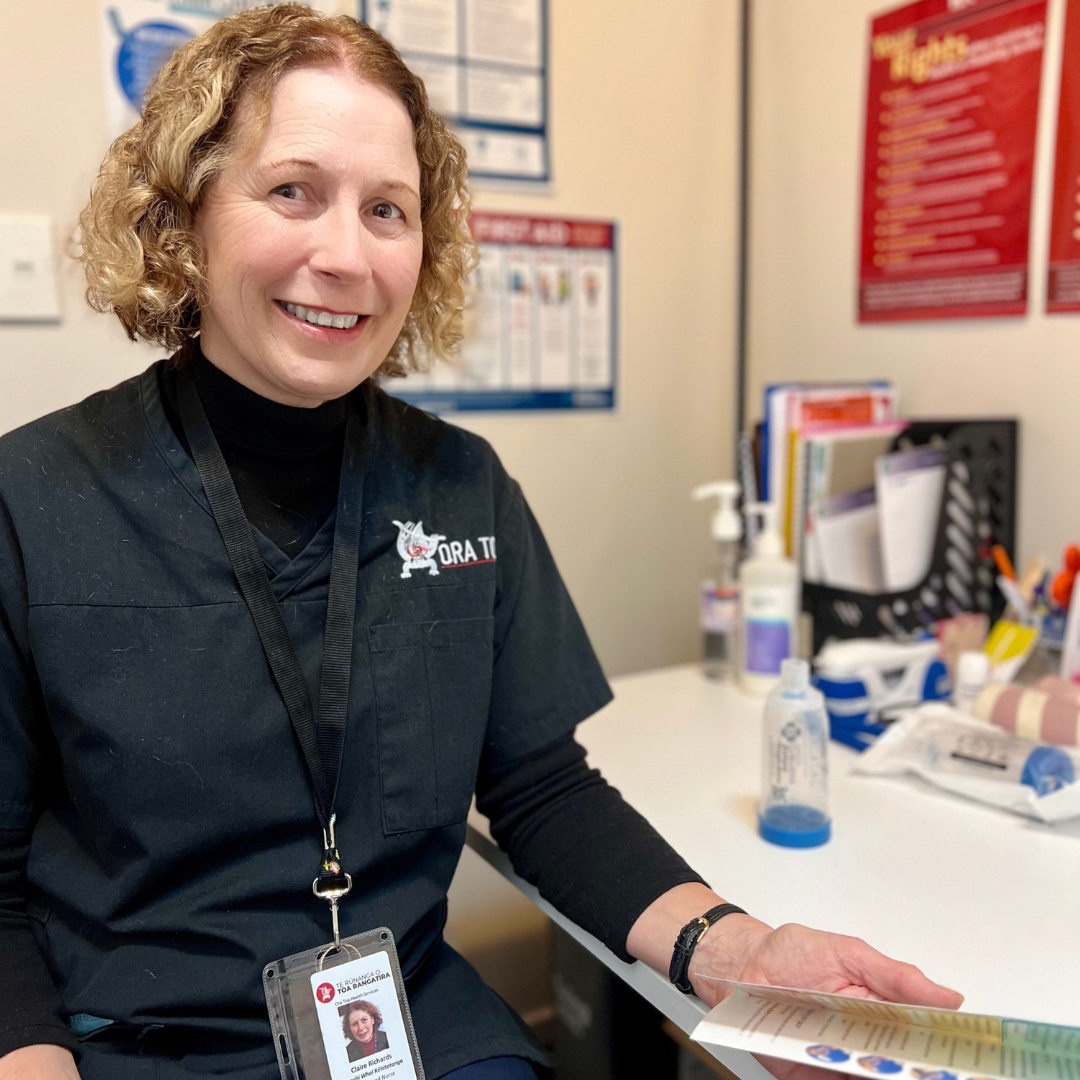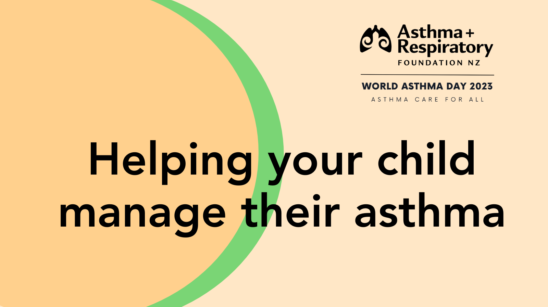
Why did you get into respiratory nursing?
I always had an interest in respiratory health. My Grandpa lived with us when I was growing up. He had COPD (chronic obstructive pulmonary disease) and was on oxygen. Seeing his experience from a young age really made an impression. Also, I had asthma and really struggled with it as a child. I loved sport but I would get half-way through a run and then I couldn’t breathe. At that time, asthma wasn’t really accepted as normal, and the teachers didn’t understand what was happening for me. Later when I was working as a practice nurse in the UK, I had the opportunity to study an asthma diploma and work at an asthma clinic.
What do you enjoy about respiratory nursing?
I’ve been at my current role for 18 years, with four years away during that time working at the hospital. It’s such a diverse role and it feels like such a privilege to be able to support people and make a difference in their lives. Our service is holistic, so we help with other things that contribute to respiratory health – we look at housing, food and we help with transport to hospital.
What are the most rewarding parts of your work?
Being based where we are, there is a lot of hardship, and people really do need to see us. Recently, I worked with a lady who had been referred to hospital with COPD and bronchiectasis but was facing huge delays. While she was waiting for her appointment, we could help with her inhaler use and chest clearance. She was so pleased because she could breathe better and sleep better at night. Before that she had been really struggling.
Another example is the Porirua Sing Your Lungs Out choir, a therapeutic choir which helps people with breathing difficulties. It is an initiative that I helped set up with one of the respiratory consultants and has now been running for seven years. It’s become a really fun and supportive community.
What does a typical day look like for you?
It varies greatly. The service I work for was set up in 2000 to address the high rates of asthma in our area, so our services are focused on people who need it the most. We do a lot of asthma education. People come into the clinic and we’ll go to people’s homes if necessary or organise transport to the clinic. We are focused on educating the whole whānau and offering support. We also visit schools, and in the past have visited the local prison. We get referrals from local GPs, pharmacists, hospitals, sometimes schools. We run a monthly support group and we see quite a lot of young children and elderly people. We also offer spirometry testing (respiratory function testing) and get referrals from GPs around the area for that work.
What is your top piece of advice for someone with a new diagnosis of a respiratory condition?
It’s really important to understand your condition and then to get help to use your inhalers properly. It is a common problem that people don’t know how to use their inhaler, but once you understand how it works and what it does then you are more motivated to use it.
What are the challenges of your role?
Resourcing and finding staff can be a challenge. But it is a complex and fulfilling role. You can help people considerably and it’s really rewarding seeing those improvements in their lives.




